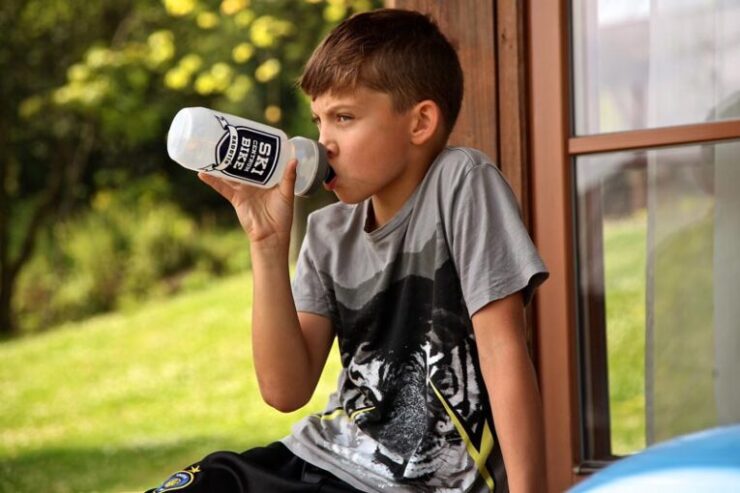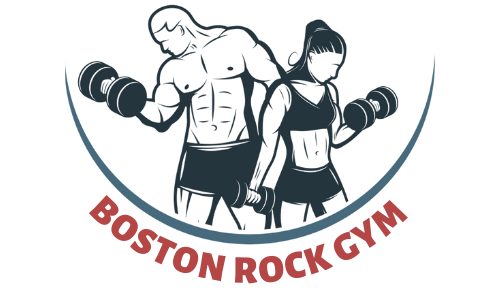
Most people will tell you that if you start going to the gym at a younger age and do some lifting, it might stunt your growth. However, this is nothing but a misconception – lifting at a younger age doesn’t necessarily affect your growth negatively, but it might even benefit you in the end.
This misconception likely came from studies that conclude how children doing hard labor end up having a shorter stature than those who didn’t do such labor. However, child labor often comes with a lack of food and nourishment, which, we think, was the soundest reason why the children didn’t grow well.
Food and exercise go together – proper nutrition is crucial when you want to build muscle and get stronger. Without proper food, children, teens, and adults who want to go to the gym won’t grow and develop well.
Another misconception with height is that we often see weight lifters being shorter than most people. That’s mostly because they have shorter arms and legs, which allow them to do workouts faster than those with taller statures (longer arms and legs); hence they get stronger due to their short height.
With that in mind, exactly when can a youngster go to the gym, perform exercises, and lift weights? Let’s find out below:
Contents
At what age can you go to the gym?
According to the American College of Sports Medicine, you can safely go to the gym as soon as you turn 13 years old and have sufficient training for lifting. Muscle gains won’t be visible by this time but at the very least, children/teens will get stronger and enhance their endurance by lifting.
As we mentioned above, lifting does not stunt your growth at all. Weight lifters who are short were short likely because of their genes and that has nothing to do with lifting weights at all. What can stunt your growth is the lack of nutrition and sleep.
As long as the youngster can follow directions properly and only lift weights that are appropriate for their age, they should be fine. After all, lifting weights that are too much for them will cause harm to their body – which is the least you want.
If you want your youngster to hit the gym, always have an expert trainer to keep an eye out for them and instruct them on the proper form when they lift. The same is true for various other exercises – they need to be monitored so that they don’t get injuries from going to the gym.
However, if your child will not lift and they will just do exercises, your child can go to the gym as soon as they can walk properly or it depends on the gym’s age restrictions. Gym activities are not restricted to weights and machines – there are yoga classes and even other fun physical activities for them.
Pointers in lifting for kids and teens
Children and teens should always be on the safe side of lifting since their muscles and bones are not that strong yet. Here are the pointers that you need to remember if you want your little one to try hitting the gym for the first time:
Get a trained professional
If your children or teens want to try out lifting, they should be properly monitored by a certified trainer or physical therapist. Kids are not like adults when it comes to bone and muscle strength, as well as coordination, so they need extra care when doing workouts.
Always do warm-ups
As with any kind of exercise routine for kids, always teach them to do warm-ups before they do any kind of lifting or workout. Stretching and other types of warm-ups will do just fine. Warm-ups will help you not get strained muscles or injuries.
Have your kids join other physical activities
If your kids also do other sports such as swimming, track and field, basketball, and the like, they will get better when it comes to lifting. The added strength and endurance coming from playing those sports will help them a lot.
If there are gym programs in your locality that enroll kids and teens in a multitude of other physical activities that includes weight lifting and others, why not try that? It will also teach your children how to socialize properly and help them make new friends.
Focus more on higher reps but lower weight
Children cannot do higher weights at the time, which is why they need to focus more on the reps first. By helping your little one get used to many reps, adding the weight will be less stressful to them.
Add weights responsibly
Be sure to have your child or teen learn exercises correctly and properly before they move to the next level of weights. As said above, injuries will happen if your child or teen doesn’t lift the right amount of weight appropriate for their age, height, weight, and fitness level.
Don’t allow younger children to lift weights
As we stated above, children should be at least 13 years of age and supervised by a responsible adult and preferably a trained professional. You don’t want your 7-year-old or toddler nosing around the dumbbells at the gym or in your home! Instead, you can give them other softer exercises for their age.
Assess the child’s willingness to exercise and/or lift
There’s no point in getting your 13-year-old to try lifting if they are simply not in the mood or have the right mindset. Lifting, like any other exercise, should be done by the person if they like it. Don’t force them into something that they don’t want to do because it will only result in an improper form and injuries.
Conclusion
As a whole, nearly any kid can go to the gym – but it depends on the type of workout you want them to do. Lifting should be done by much older kids because it will be harsh on your child’s muscles and bones. Talk to your gym trainer to get an assessment on which workouts are more suitable for your kid.
